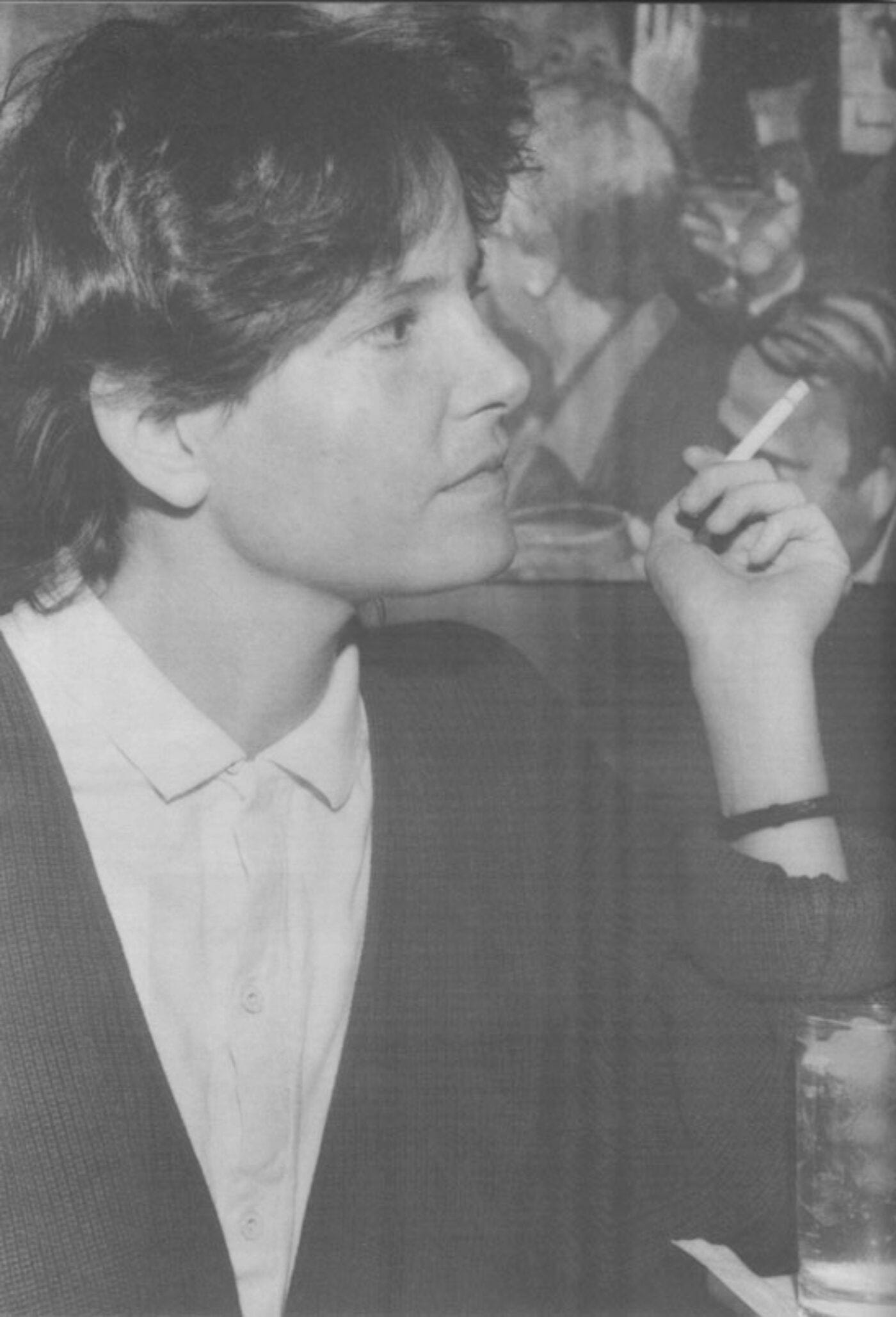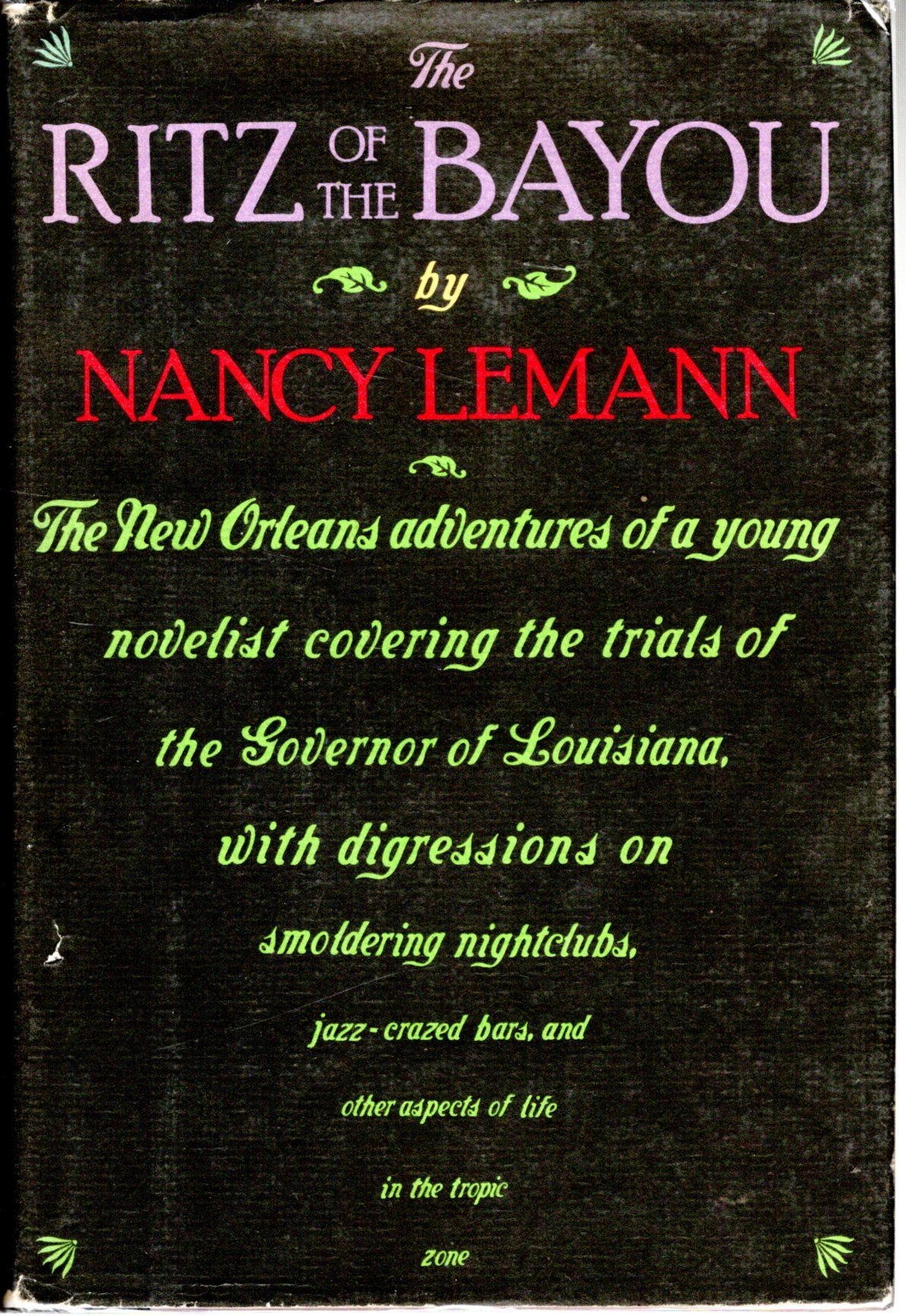Sometimes I worry that I’m never going to find my favorite book. That it’s out there, buried in the stacks somewhere, and I’ll miss it. Or that it’ll be at the bottom of a pile of books on my floor and I’ll die before I get to it. Or—and this is the real fear—that it hasn’t been written yet, won’t be until long after I’m deceased. I mean, it’s really not a problem. There’s mountains of wonderful stuff I haven’t even begun to tap into yet. I’ll never come close to reading a fraction of the good stuff. This brings me great joy and comfort, even if it means I miss out on my favorite book. An overabundance of greatness is not a thing to complain about.
And I’m always coming across genius books and authors who are new to me. Like the writer Nancy Lemann, recommended to me by my friend Will Stephenson, who told me to start with Lives of the Saints. I loved Lives of the Saints. I thought it was one of the best books I’d ever read. In fact, I was a little annoyed that it had taken so long to be told about it, since, being a lyrical, near plotless, voice-driven novel about the South written in the 1980s, it was very much my shit. It could not possibly be more my shit. I read it through in a day and a half and called everyone I knew about it. I’m told Nancy Lemann is currently having a renaissance, and nothing could make me happier.
So when I started her nonfiction book, The Ritz of the Bayou (subtitle: The New Orleans adventures of a young novelists covering the trials of the Governor of Louisiana, with digressions on smoldering nightclubs, jazz-crazed bars, and other aspects of life in the tropic zone), I didn’t have much of an idea what the book would be. I’m not particularly interested in the New Orleans political life, circa 1985. But I am interested in Nancy Lemann’s brain, her skill as a writer, and the deep pleasure of reading beautiful sentences, so I figured I’d give it a whirl.
What I found was a book that has already become a favorite (though not the favorite, which is a mythical thing, an ideal, and I hope it ever remains that way). It’s even better than Lives of the Saints. Turns out, though a journalist hired to cover the Governor’s fraud trial, Nancy Lemann isn’t particularly interested in New Orleans politics either. What is she interested in? I’ll let her speak:
“There is so much human frailty floating around that it is a dramatic thing to see, for better and for worse, and I have to say that there, among the human frailty, I found something I had ceased to expect, and it was written in dramatic script, when otherwise, when it was over, life was written in small print. It is not that I advocate human frailty, but I had never seen so much of it, all at once, and it was a sort of breath-taking spectacle.”
The book isn’t so much an account of a trial as it is an invoking of the carnival. (This is where it gets tough, because all I want to do is quote from the book, I loved it so much. You should probably stop reading this and just buy a copy already. It’s out of print, which is about as damning an indictment of the publishing industry as I can think of. But used copies are cheap.) It is a carnival Nancy Lemann navigates with grace, good humor, and kind of awe-filled surrender. The courtroom party never ends, and everyone’s there to enter the spectacle. “I began to think a lot of people in the courtroom were psychotically jolly.”
And the cast of characters are a wonder. We have the Governor’s nephew, “fraud defendant by day, cocktail bar pianist by night” who is “staying at a local hotel free of charge in return for his services at the piano bar.” We have the courtroom existentialist, who spends his spare time grading every oyster he eats. We have the dignified, old-school defense attorney in his slow-speaking drawl (another quote: “A venerable local female reporter was talking to me. ‘You think he’s handsome now?’ she said. ‘You should have seen him forty years ago.’”). We have the “jazz-crazed assistant prosecutor dancing his heart out at Benny’s Bar.” We have the “man from the train,” who makes a “somewhat catastrophic entrance into the French Quarter, for a football game,” and who is “worse for the wear. Physically disintegrating, might be a better description of him.” We have the doomed prosecutor, who was “not winning when he moralized about the Governor, who is known for gambling, womanizing, and risqué bon mots, for people hold few things as dear as those.”
Which brings us to the Governor, who isn’t mentioned by his legal name until halfway through the book. What we can surmise about the Governor is as follows: He is wonderfully charming, he is most certainly guilty, and he will very likely get away with it.
And then there’s Nancy herself. Described as “psychotically gloomy,” but more than delighted to be swept up into the carnival, to become a character herself, until she’s flung worn-out and heartbroken back into whatever could be called the real world.
You can tell Nancy really loves these people. It shines through in every line. The reason I quoted the subtitle in its entirety is because it’s important. Though she’s moonlighting as a journalist, Nancy Lemann is a novelist, and she approaches her subjects with a novelist’s heart. She sees them clearly—the good and the bad—but without judgement, and that is one of her greatest gift of all.
I don’t really have much else to say about the book, so I’m just going to quote a few passages that I loved. I really could quote this book all day. Here goes:
"A friend recalls in her childhood seeing Earl Long drive through Mandeville, Louisiana, in a pink Cadillac accompanied by Blaze Starr, the stripper, on his way to be interred in the state institution."
"'I have a proposal to make,' said the man from the train. 'I propose you sit on my lap.'
We were in the garden with green hurricane breezes and palm trees and weather.
He said he wanted to take me to Kmart and buy me the most expensive tennis racket I had ever owned. Then he wanted to take me to Paris. Instead we went to the Bombay Club, where he ordered five steak dinners to go. I don't know why. Then he asked the waitress to also wrap up the bread basket. You already know, the man from the train was a nut."
"It is not known what came between the Governor's brother and the pardoned client; but it is certain the Governor loved his brother; and the course of those events seems to have a tragic irony. How can I say it, the people are wild, they were close to unsavory characters, and they danced on the edge of the law."
And maybe my favorite:
"The courtroom existentialist was standing at the oyster bar, engaging in his daily lunch activity, grading the oysters. The oyster diary lay open on the bar.
January 3, 1940. B plus
April 22, 1956. C
December 2, 1986. B plus
Some sample entries. You get the picture. It dates back, I believe, to the 1930s. You might ask again, Why? I think you would be hard put to get an answer out of him.
The courtroom existentialist doesn't really have the answers, as he will be the first to admit.
But he may live greatly in the law, and drink the bitter cup of heroism, and wear his heart out after the unattainable."
I really could go on forever. But luckily I don’t have to, because there’s easily a hundred copies of this book on the internet about as inexpensive as you could want them, and I’m pretty sure you’re going to love it just as much as I do.






How amazing! I just stumbled over this review after an afternoon of giving my best friend a copy of The Fiery Pantheon, which I just finished, which I loved almost as much as Lives of the Saints. For one, it had a “happy” ending. It felt like reading an insane Henry James book! I was so pleased to find your review, especially when the Ritz is the next book for me to read — and because the afternoon was spent extolling the joys of Nancy Lemann’s writing, unlike anything I’ve ever read, really. And my best friend who isn’t keen on the South (whereas I am from there) was not impressed until I read her several bits from the book. And it starts in Virginia and then goes to England, and then a cruise in the raging Middle East waters. So not really the South. I found your review enthralling and so happy to find it in my new place, Substack. Thanks for sharing. Now I have to go find a copy of my own! 🥰
I may have to look into this writer. Nice review.